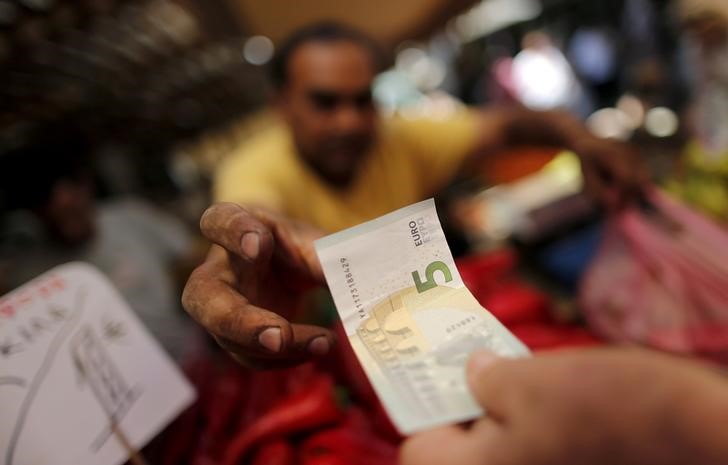BRUSSELS (Reuters) - Euro zone inflation hit 2 percent for the first time in more than a year in June due to surging energy and food costs, offering some comfort to the European Central Bank as it seeks to rein in its exceptional economic stimulus.
Inflation in the 19 countries sharing the euro rose to 2.0 percent from 1.9 percent in May, EU statistics office Eurostat said on Friday. The figure was in line with market expectations as energy prices in particular spiked.
Inflation was last at 2 percent in February 2017.
Excluding volatile energy and unprocessed food prices, inflation was 1.2 percent, just below the average forecast of economists for no change from the 1.3 percent in May.
Another core inflation measure, also excluding alcohol and tobacco prices, was 1.0 percent in June, from 1.1 percent in May and in line with expectations.
Energy prices were up 8.0 percent year-on-year, while unprocessed food was 3.0 percent more expensive.
The ECB has a mandate to keep inflation below but close to 2 percent, a task that has proven challenging, even with economic growth on its best run in a decade.
The ECB decided earlier this month to end its 2.6 billion euro ($3.0 billion) bond purchase programme by the close of the year but said interest rates would stay unchanged at least through summer 2019.
But the threat of a global trade war and the unclear budget policies of the new Italian government present major risks for the euro zone economy.
Eurostat's flash estimate for the month does not include a monthly calculation.
For details of Eurostat data click on:
http://ec.europa.eu/eurostat/news/news-releases
